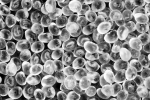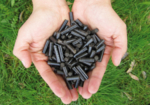
Building sustainably - actively protecting the climate
Using renewable and recycled raw materials, minimising the use of water and energy during construction works and subsequent operation of a building, conserving resources and protecting the environment while maintaining biodiversity are all important components of sustainable building construction.
https://www.biooekonomie-bw.de/en/articles/dossiers/building-sustainably-actively-protecting-the-climate

